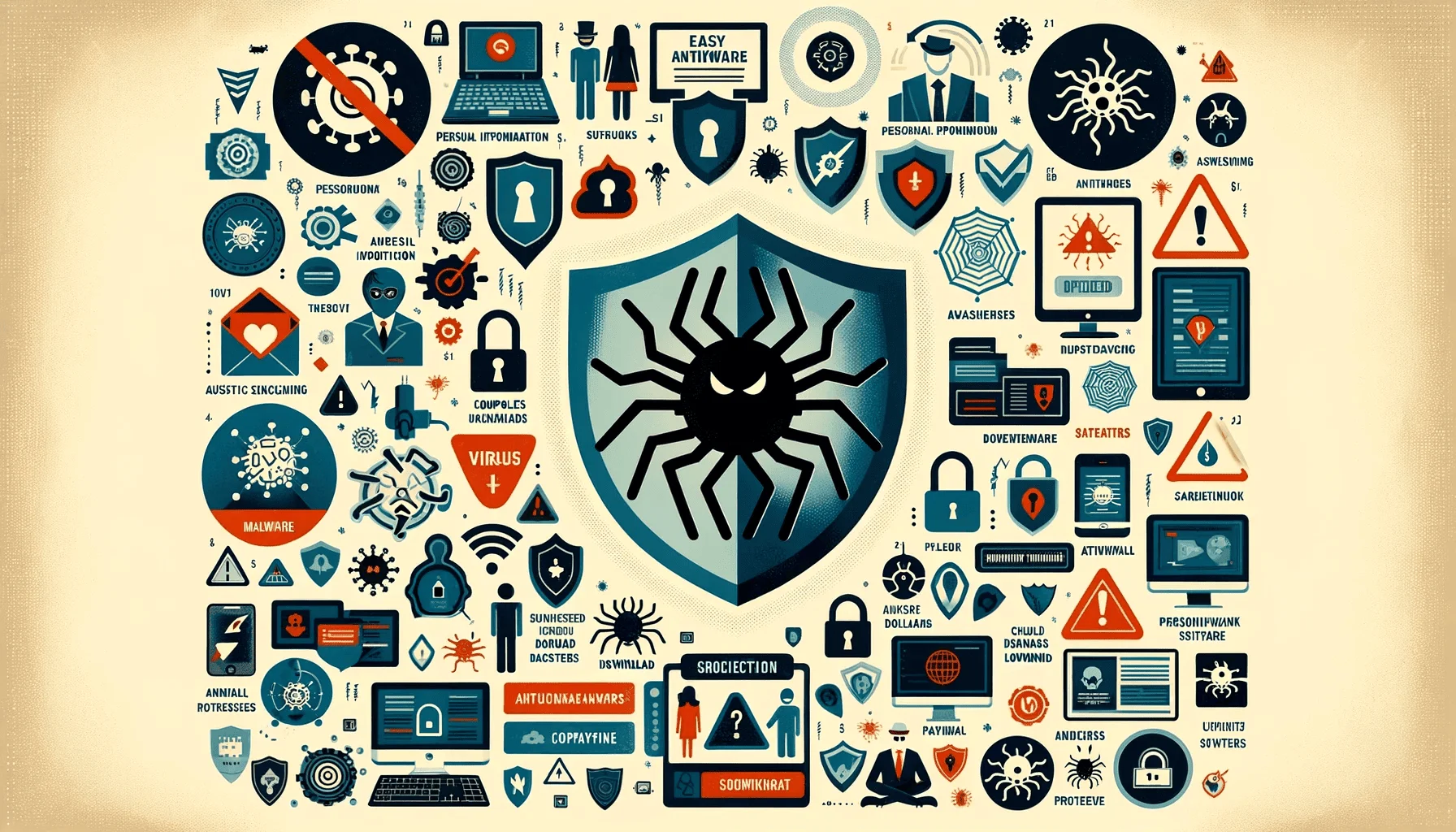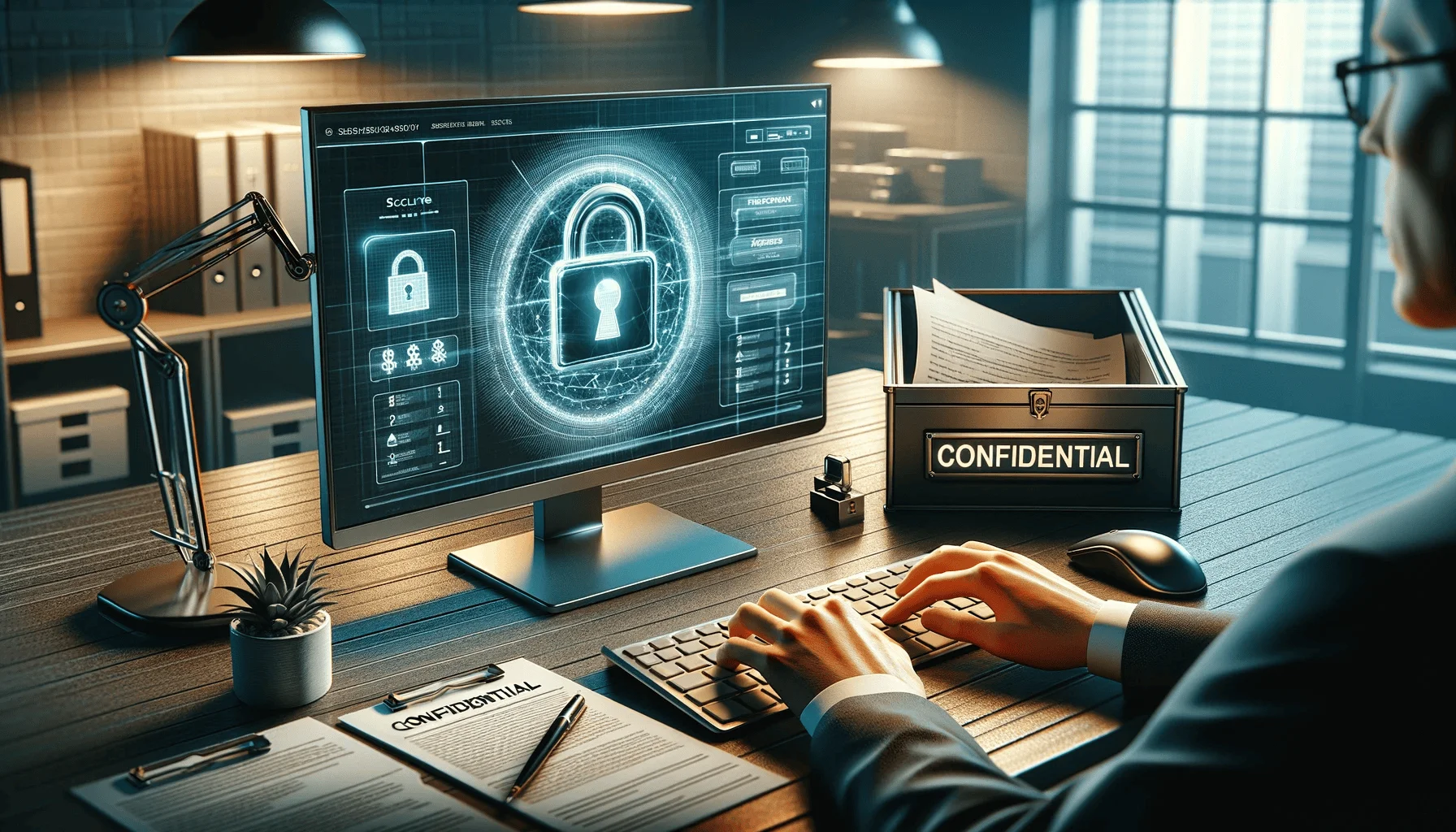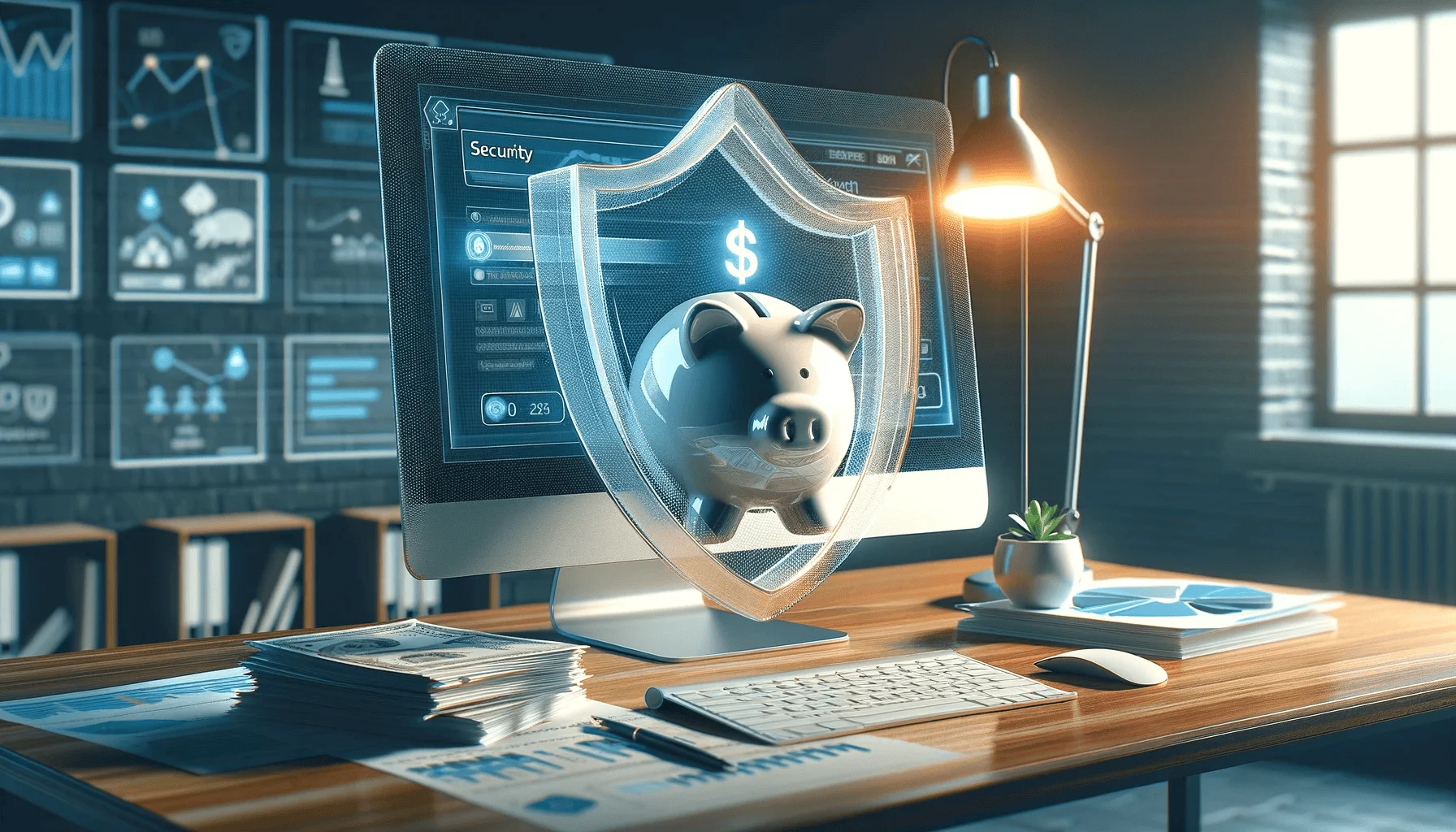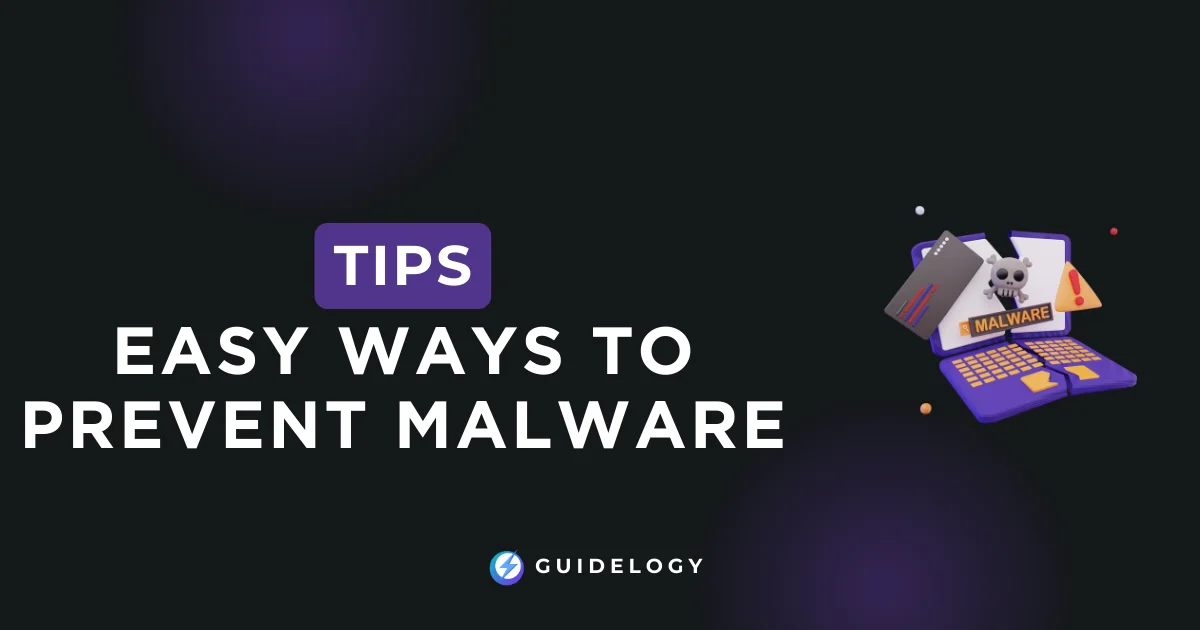In today's digital world, we are always at risk of malware, which can harm our personal information and disrupt our device's performance. But don't worry, protecting yourself is easier than you think.
You may have heard scary stories about malware causing problems, but preventing these attacks is not as hard as it seems. By following a few simple strategies, you can make your devices stronger against these unwanted intruders.
To keep your digital space secure, it's important to understand the basics of malware protection. Let me guide you through some easy yet effective ways to prevent malware from infecting your devices.
Understanding Malware
What is Malware?
Malware, which stands for bad software, is any program or file that is made to harm or exploit your computer, phone, or network. Unlike normal software, malware is created to disrupt your activities, steal your information, or gain access to your systems without permission. Getting infected with malware can cause anything from small annoyances to serious damage to your computer and data.
For example, the WannaCry ransomware attack in 2017 affected over 200,000 computers in 150 countries, encrypting their data and demanding money to unlock it.

To protect yourself from malware, it's important to use good antivirus software. These programs constantly check your system for any malicious activity and quickly stop any threats they find. Having a firewall is also important. It acts like a barrier between your computer and the internet, watching the traffic going in and out to block any unauthorized access.
Types of Malware
There are several types of malware, each with unique characteristics and methods of infection:
- Viruses: These are notorious for replicating themselves and spreading to other devices, corrupting files and systems in the process. A classic example is the ILOVEYOU virus from 2000 which caused an estimated $10 billion in damages globally by infecting millions of Windows computers.
- Worms: Similar to viruses in their self-replicating nature, worms spread across networks without needing to attach themselves to a program. Slammer worm, for instance, dramatically slowed down the internet within just 15 minutes of its appearance in 2003.
- Trojans: These are deceptive software that masquerade as legitimate programs but carry a malicious function. Users unknowingly install a Trojan, which then creates a backdoor for other malware to enter.
- Ransomware: This is a type of malware that encrypts your files and demands payment for their release. The CryptoLocker attack of 2013 is an example of ransomware that extorted money from its victims.
- Spyware: Stealthy by design, spyware monitors your activity and gathers personal information without your knowledge. Keyloggers, for instance, record keystrokes to steal passwords and other sensitive data.
- Adware: Often bundled with free software, adware inundates your system with unwanted advertisements. These can also redirect your searches to generate ad revenue for the developers.
Using tools like ad blockers can help protect you by blocking harmful ads that might contain malicious scripts. It's important to practice safe browsing habits, such as avoiding suspicious links that are often used to distribute malware. Always make sure to check the legitimacy of emails and websites before interacting with them or downloading any content. Keeping your systems and applications up to date with the latest updates and patches is crucial, as it makes it harder for malware to attack your devices. Additionally, it's a good idea to regularly back up your data to minimize the impact in case you do experience an attack.
Also Read: Best Free Virus Removal Apps
Importance of Preventing Malware
Protecting Your Personal Information

In today's digital world, your personal information is like the key to your online identity. It's really important to keep this data safe and secure. Remember the Equifax breach in 2017? Over 147 million people had their personal information compromised. That's why it's crucial to have antivirus software installed on your device. It acts like a guard, checking files for potential threats and stopping unauthorized access to your sensitive data.
By following safe browsing practices, you can greatly reduce the risk of visiting websites that are known for stealing personal information. And don't forget about firewall protection! It works as a barrier between your device and untrusted networks, keeping your data safe from cyber threats.
Avoiding Financial Loss
Financially, getting infected with malware can have disastrous consequences. Just take the WannaCry ransomware attack in 2017 as an example. It affected about 200,000 computers in 150 countries and caused damages that ranged from hundreds of millions to billions of dollars. These attacks can drain your bank account, result in unauthorized charges, and even lead to identity theft.

To protect yourself, it's a good idea to use ad blockers to prevent annoying ads that could contain malware pretending to be legitimate offers. Additionally, be cautious of suspicious links in emails and messages. These links often lead to phishing websites that aim to steal your financial information. To stay safe, it's important to use a reliable antivirus solution and be vigilant about your online activities.
Easy Ways to Prevent Malware
Keep Your Software Updated
One of the easiest but most important things you can do is to regularly update all your software. Hackers often take advantage of weaknesses in old software to put harmful programs on your computer. By making sure your operating system and applications update automatically, you are fixing security issues and keeping your device safe and strong.
I recommend keeping your software up to date to protect your computer from cyber threats. It's important to regularly check for updates and install them promptly. By doing so, you can strengthen your computer's defenses and minimize the risk of malware infections. Remember, prevention is key when it comes to cybersecurity!
Use Strong and Unique Passwords
Having strong and unique passwords is really important to protect yourself from unauthorized access. When your passwords are diverse and complex, it becomes much harder for hackers to guess them using brute force or dictionary attacks. Do you remember the LinkedIn breach in 2012 where 6.5 million passwords were compromised? By using different passwords for each of your accounts, you can greatly reduce the risk of a domino effect if one of your accounts gets hacked.
Be Cautious While Browsing the Internet
It's really important to be careful while browsing the internet. Always remember to check if a website is trustworthy before sharing any personal information. Many times, malware infections happen when we click on suspicious links or visit compromised websites. To make sure you stay safe, it's a good idea to use ad blockers. They can help prevent malvertising attacks, which are when malware gets spread through malicious advertisements. By following these practices, you can protect yourself from online threats and stay secure while browsing the internet.
Avoid Downloading from Untrusted Sources
Downloading files from untrusted sources is a common way for malware to enter your device. Be cautious when getting applications or files from unofficial websites, as they may have hidden malware. It's always a good idea to check if the source is trustworthy and go for official app stores or verified vendors. For example, the notorious Dyre banking malware was often spread through email attachments from untrustworthy sources.
Install a Reliable Antivirus Software
Using antivirus software is very important for protecting your devices from harmful software. The best antivirus programs have big databases and can scan your device in real-time to find and stop threats. In 2019, a report by the Indian Computer Emergency Response Team (CERT-In) showed that there was a 21% increase in cyberattacks. Having a good antivirus is crucial for defending yourself against these attacks.
Enable Automatic Scanning and Updates
To keep your antivirus protection strong, it's a good idea to turn on automatic scanning and updates for your antivirus software. This means that your software will constantly watch out for any threats and keep itself updated with the latest defenses against malware. With this proactive defense, you won't have to worry about remembering to manually scan or update your software.
Use a Firewall
Firewall protection acts like a wall between your internal network and outside traffic. Its purpose is to stop unauthorized access while still allowing valid communications to go through. Without a firewall, you could be at risk of intrusions, as shown by the cyberattacks on Ukraine's power grid in 2015. This incident emphasized the importance of having strong network defenses. So, it's crucial for you to have a firewall to keep your network safe and secure.
Be Wary of Phishing Emails and Messages
Phishing emails and messages are very common ways of spreading harmful software. These tricky communications pretend to be genuine in order to fool you into downloading harmful software or sharing important information. Remember the incident in 2016 with Democratic National Committee employees? It showed just how harmful phishing attacks can be. Always double-check if an email is authentic and be careful with links and attachments in messages from people you don't know.
Also Read: Best Productivity Apps For Windows
Conclusion
Protecting yourself from malware doesn't have to be complicated. By following these simple practices, you can keep your devices safe and protect your personal information. Remember to stay alert and proactive to keep cyber threats away. Make these steps a part of your regular online routine, and you'll greatly reduce the risk of being targeted by malware attacks. Stay updated, stay secure, and browse with confidence, knowing that you've taken the right steps to protect your online world.
Frequently Asked Questions
What are the best practices to prevent malware attacks?
To prevent malware attacks, regularly update your software, use strong and unique passwords, practice safe browsing, avoid downloads from untrusted sources, install reputable antivirus software, employ firewall protection, and remain vigilant against phishing attempts.
Why is keeping software updated important for malware prevention?
Software updates often include patches for security vulnerabilities that cybercriminals exploit. Keeping software updated reduces the risk of malware infections that exploit outdated software.
How can strong passwords protect against malware?
Strong and unique passwords can prevent unauthorized access to your accounts, reducing the chance of malware being installed without your knowledge through breached accounts.
What role does safe browsing play in preventing malware?
Safe browsing involves being cautious about the websites you visit, scrutinizing them before providing personal information, and using ad blockers to reduce the risk of encountering malicious ads that could deliver malware.
Should I download software from any website?
No, only download software from trusted sources to minimize the risk of inadvertently downloading malware disguised as legitimate software.
How does antivirus software help in malware prevention?
Antivirus software helps prevent malware attacks by automatically scanning your devices for known threats and offering real-time protection, as well as automatic updates to its virus definitions.
What is the importance of a firewall in cybersecurity?
A firewall acts as a barrier between your device and the internet, controlling incoming and outgoing network traffic, and preventing unauthorized access that could result in malware infections.
Why should I be cautious of phishing emails?
Phishing emails often contain links or attachments that, when clicked, can install malware on your device, or they may trick you into revealing sensitive information that could lead to a malware attack.
